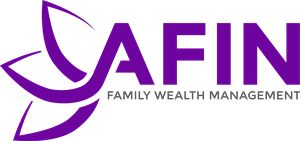
Maximizing Tax Efficiency: Strategies for C Corp and S Corp Owners
Introduction
For business owners operating under the corporate structure, minimizing tax liabilities is a top priority. Both C Corporations and S Corporations offer unique advantages when it comes to tax planning. However, navigating the complex tax landscape requires a strategic approach. In this article, we will explore specific strategies that C Corp and S Corp owners can employ to ensure they do not overpay in taxes while remaining compliant with relevant tax laws.
C Corporation Strategies
1.1. Utilize Tax Deductions: C Corporations can take advantage of numerous tax deductions to reduce their taxable income. These deductions include expenses such as employee salaries, benefits, rent, advertising, and business travel. By carefully tracking and documenting these expenses, C Corp owners can lower their overall tax burden.
1.2 Dividend Timing: C Corps have the ability to control when dividends are distributed to shareholders. By strategically timing dividend payouts, owners can align them with favorable tax years or capital gains rates. Additionally, reinvesting profits back into the business can delay or minimize taxable income.
1.3. Consider Fringe Benefits: C Corps can offer various fringe benefits to employees, such as health insurance, retirement plans, and educational assistance. These benefits can be deducted as business expenses, reducing taxable income. Properly structuring employee compensation packages to include tax-efficient fringe benefits can provide a win-win situation for both the corporation and its employees.
1.4. Capitalize on Tax Credits: C Corps may qualify for certain tax credits, such as research and development credits, energy-efficient property credits, or work opportunity tax credits. By identifying and taking advantage of these credits, C Corp owners can significantly reduce their tax liability.
S Corporation Strategies
2.1. Salary vs. Distribution: One of the primary advantages of S Corporations is the ability to avoid self-employment taxes on distributions. S Corp owners can structure their compensation by receiving a reasonable salary, subject to employment taxes, while taking the remaining profits as distributions. It is important to strike a balance between a reasonable salary and the amount of distributions to avoid scrutiny from the IRS.
2.2. Pass-Through Deductions: S Corporations are pass-through entities, meaning that profits and losses are passed through to shareholders' personal tax returns. S Corp owners can utilize deductions available on their personal returns to offset the business income, reducing the overall tax burden. Deductions may include mortgage interest, medical expenses, and charitable contributions, among others.
2.3. Loss Carryovers: If an S Corporation incurs net operating losses (NOLs), these losses can be carried forward to offset future taxable income. This provision allows S Corp owners to leverage losses during downturns or early-stage growth phases to offset taxable income in profitable years.
2.4. Evaluate Entity Conversion: Depending on the business's circumstances and long-term goals, it may be beneficial to convert from an S Corp to a C Corp or vice versa. Consulting with a tax professional can help evaluate the potential tax advantages of such a conversion, considering factors like future growth plans, anticipated income levels, and shareholder preferences.
To summarize, managing tax liabilities is crucial for C Corp and S Corp owners, as it directly impacts the profitability and long-term success of their businesses. By employing the strategies mentioned above and consulting with tax professionals, corporate owners can ensure they optimize their tax planning while remaining compliant with applicable tax laws. Remember, tax planning should be approached with care and consideration of the specific circumstances of the business and its owners.
Ready to explore more? Reach out now for personalized solutions, in-depth insights and customization to your specific needs. Contact me directly at mgoldenberg@afinwealth.com to start the process.
Michael Goldenberg, CFP®
CEO/Co-Founder, Senior Financial Advisor
AFIN Family Wealth Management
1220 Kensington Rd, Suite 220, Oak Brook, IL 60523
C: 630-230-1038 F: 630-686-1467 Office: 630-686-1463
Securities and insurance products are offered through Cetera Investment Services LLC (doing insurance business in CA as CFGIS Insurance Agency), member FINRA/SIPC. Advisory services are offered through Cetera Investment Advisers LLC. Neither firm is affiliated with the financial institution where investment services are offered. Advisory services are only offered by Investment Adviser Representatives. Investments are: *Not FDIC/NCUSIF insured *May lose value *Not financial institution guaranteed *Not a deposit *Not insured by any federal government agency.
Confidential: This email and any files transmitted with it are confidential, and are intended solely for the use of the individual or entity to whom this email is addressed. If you are not one of the named recipient(s) or otherwise have reason to believe that you have received this message in error, please notify the sender and delete this message immediately from your computer. Any other use, retention, dissemination, forward, printing, or copying of this message is strictly prohibited.

